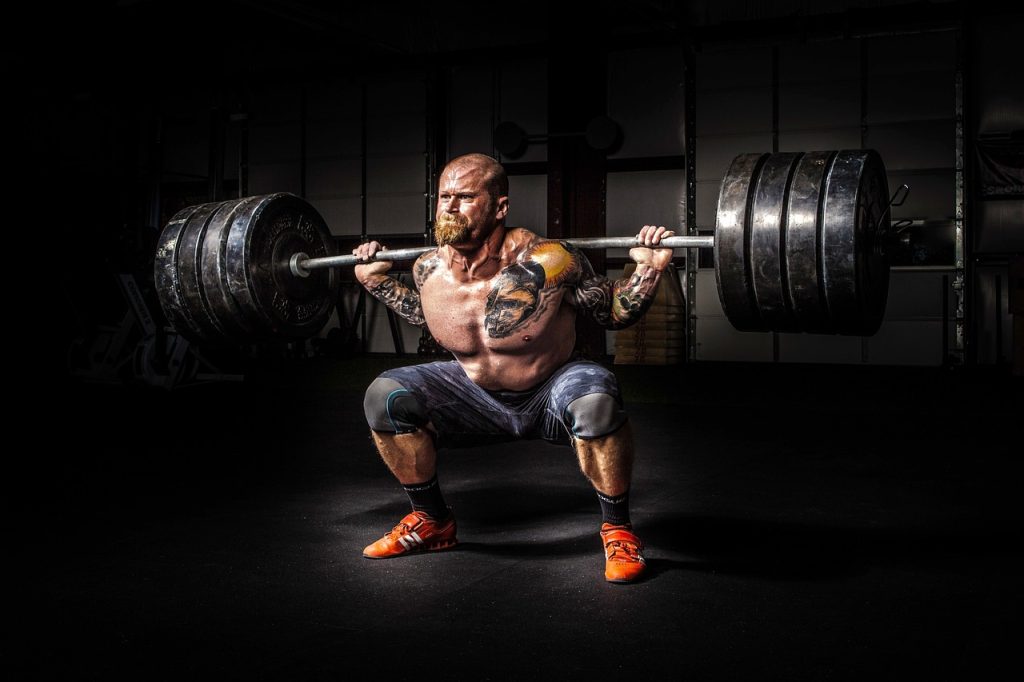Geschatte leestijd: 3 minuten
When it comes to your body, brainpower is more important than muscle power. Such a conclusion could at least be drawn from a new study by Cambridge University.
Brains vs. Muscles
The study, published this month in Scientific Reports, looked into prioritization of the body [1]. If you train intensively while also needing to focus on a mental task, you will not perform optimally in both aspects. The research also indicates that your muscles will suffer more from this than your brain’s performance.
That our body apparently prioritizes brainpower could have a good reason from an evolutionary perspective. Humans have relatively large brains, and their use has brought us to the top of the food chain. However, they consume a lot of energy. People who calculate their calorie needs for the first time are often surprised by the relatively small influence of activity on daily energy expenditure. Most of the energy is already consumed while doing nothing because maintaining our body requires quite a lot. 20% of oxygen consumption is then accounted for by the brains, which on average form only 2% of the body weight. Of all the fuel in the form of glucose, 25% is used by the brain. There is no other organ that consumes so much energy per gram. Such a set of brains must prove its worth every day by being able to find enough energy to survive.
The researchers at Cambridge wondered to what extent the muscles sacrifice themselves for the brain. After all, muscles also require a lot of energy. Like the brain, they use glucose as their primary fuel. However, the brain can store relatively little energy compared to muscles, which can store it in the form of glycogen. According to the “Selfish Brain Hypothesis,” the brain can therefore access energy/glucose that was actually intended for other organs when necessary [2]. Like muscles, the brain also consumes more energy when used intensively. What if you have to do both?
Not only interesting from an evolutionary historical point of view, but also to know to what extent it is advisable or not to combine mental and physical tasks.
Brainpower vs. Muscle Strength
The researchers would have liked to open a glimpse into cavemen for a test. In the absence of them, they used rowers at the university.
A total of 62 rowers were asked to visit the lab three times under three different conditions.
- Mental task: Memorize as many words as possible on a large screen for three minutes. Immediately after the screen went blank, as many of these words as possible had to be written down.
- Physical task: Row as intensively as possible on a rowing machine for three minutes. The output was measured.
- Combination of both
Having to perform both tasks at the same time resulted in a 13% lower output in rowing. This decrease was approximately 30% greater than the decrease in the number of words remembered. According to the researchers, the explanation for the results is that the muscles and brain fought for fuel, in this case, glucose. The brain got priority.
The implication would be that “our brainpower probably proved to be a greater advantage than our muscle strength,” according to Dr. Longman. No shit, I think in turn. The practical implication is that you probably won’t understand a lecture on quantum mechanics and super symmetry any faster during a marathon session of burpees.
When Exercise Actually Improves Brainpower
The researchers admit that the study is of short duration and they did not directly look at the uptake of glucose by the muscles and brains. It would be interesting to see similar studies with differences in intensity regarding the physical task.
Earlier this year, it was found that cardio before and during a language course improved results. Physical training would increase brain plasticity. Decreased plasticity is one of the reasons why learning ability decreases as age progresses. However, this training does not need to be at the highest intensity and not necessarily during learning. In the study that prompted the article, cycling was done at moderate intensity for 20 minutes before the lesson until fifteen minutes after the start. Besides cycling during learning, they had started earlier.
Although it is not entirely clear what the perfect timing is for your cardio session in relation to preparing for a test, combining them seems to be no problem. Depending on how hard you cycle, of course.
References
- nature.com/articles/s41598-017-14186-2
- Peters, A. et al. The selfish brain: competition for energy resources. Neurosci Biobehav Rev. 28, 143–80 (2004).

